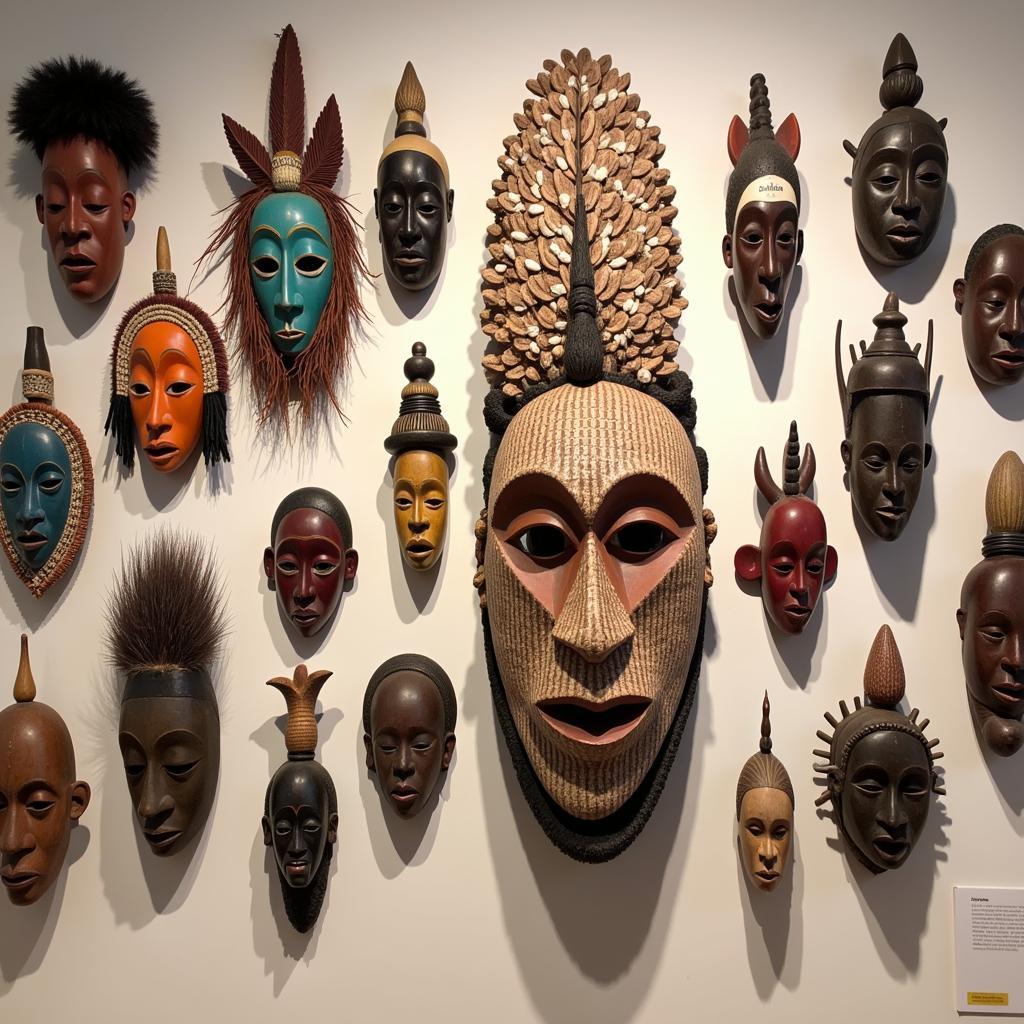African Black Soap for Skin Discoloration: A Natural Solution
African black soap has gained immense popularity in recent years for its touted skin benefits, particularly for addressing skin discoloration. This traditional soap, originating from West Africa, is crafted from natural ingredients and has been used for centuries for its cleansing and healing properties. But can it truly help with skin discoloration? Let’s delve into the world of African black soap and explore its effectiveness in achieving a more even skin tone.
Understanding Skin Discoloration: What Causes It?
Skin discoloration refers to any changes in the natural color of your skin. It can manifest as dark spots, patches, or uneven skin tone. Several factors can contribute to skin discoloration, including:
- Hyperpigmentation: This occurs when the skin produces excess melanin, the pigment responsible for skin color. Sun exposure, acne scars, and hormonal changes are common culprits.
- Hypopigmentation: This is the opposite of hyperpigmentation, where there is a decrease in melanin production, leading to lighter patches of skin. Conditions like vitiligo and eczema can cause hypopigmentation.
- Post-inflammatory hyperpigmentation (PIH): This type of discoloration occurs after an injury or inflammation of the skin, such as acne, burns, or eczema.
The Power of African Black Soap: A Traditional Remedy
African black soap, often referred to as “black soap” or “Anago soap,” is a natural product handmade in West Africa, primarily in countries like Ghana, Nigeria, and Togo. Its deep color comes from the ash of locally harvested plants, which are sun-dried and roasted. While recipes vary, common ingredients include:
- Plantain Peels: Rich in antioxidants and vitamins A and E, plantain peels are known for their soothing and skin-brightening properties.
- Cocoa Pods: Packed with antioxidants, cocoa pods help protect the skin from free radical damage and promote a more even complexion.
- Shea Butter: This deeply moisturizing ingredient nourishes the skin, reduces inflammation, and aids in the healing process.
- Palm Oil: A natural source of vitamin E and antioxidants, palm oil helps to protect and heal the skin.
Can African Black Soap Fade Skin Discoloration?
The combination of natural ingredients in African black soap makes it a potentially effective solution for reducing the appearance of skin discoloration. Here’s how:
- Exfoliation: The slightly grainy texture of raw African black soap provides gentle exfoliation, removing dead skin cells that can contribute to a dull and uneven complexion. This exfoliating action can help fade hyperpigmentation over time.
- Antioxidant Power: The abundance of antioxidants in ingredients like plantain peels and cocoa pods helps combat free radical damage, a major contributor to skin aging and discoloration.
- Anti-inflammatory Properties: African black soap’s anti-inflammatory properties, primarily from shea butter, can help calm inflammation and reduce redness, making it beneficial for addressing post-inflammatory hyperpigmentation.
“Many of my patients have seen positive results when incorporating authentic African black soap into their skincare routines. It’s important to remember that consistency is key, and results may vary depending on individual skin types and the severity of discoloration,” says Dr. Abena Owusu, a dermatologist specializing in traditional African skincare remedies.
Choosing the Right African Black Soap: Authenticity Matters
While the benefits of African black soap are promising, it’s crucial to choose authentic products. Unfortunately, the market is flooded with imitations that often contain harsh chemicals and artificial fragrances, which can be counterproductive, especially for sensitive skin.
Here’s what to look for when selecting African black soap:
- Ingredient List: Authentic African black soap should have minimal ingredients, typically the traditional ones mentioned earlier. Avoid soaps with artificial colors, fragrances, or preservatives.
- Color and Texture: True African black soap often has a brown or deep brown hue and a somewhat crumbly texture. Beware of perfectly smooth or brightly colored soaps.
- Origin: Opt for soaps that clearly state their origin as Ghana, Nigeria, Togo, or other West African countries known for traditional black soap production.
How to Use African Black Soap for Skin Discoloration
Incorporating African black soap into your skincare routine is simple:
- Create a Lather: Wet the soap bar and lather it in your hands. You can also lather the soap on a washcloth or sponge.
- Apply to Face and Body: Gently massage the lather onto your face and body in circular motions.
- Rinse Thoroughly: Rinse off the soap completely with lukewarm water.
- Follow with Moisturizer: Apply your favorite moisturizer after use, as African black soap can be drying, especially for those with already dry skin.
Important Considerations:
- Frequency: Start by using African black soap 2-3 times a week and gradually increase the frequency as your skin tolerates.
- Patch Test: It’s always a good idea to perform a patch test on a small area of skin before applying it to your entire face or body, especially if you have sensitive skin.
- Sun Sensitivity: African black soap can increase your skin’s sensitivity to the sun. Always apply sunscreen with at least SPF 30 during the day, even on cloudy days.
African Black Soap: A Natural Approach to Even Skin Tone
African black soap offers a natural and potentially effective way to address skin discoloration. Its unique blend of traditional ingredients, combined with its gentle exfoliating and antioxidant properties, can help fade dark spots, even out skin tone, and promote a healthy complexion. Remember to choose authentic products, be mindful of your skin’s sensitivity, and be patient, as results take time and consistency.
Frequently Asked Questions
1. Is African black soap suitable for all skin types?
While generally safe, those with extremely dry or sensitive skin should use it cautiously as it can be drying. Always do a patch test first.
2. How long does it take to see results with African black soap?
Results vary, but with consistent use, you might notice subtle improvements in skin tone and texture within a few weeks.
3. Can I use African black soap alongside other skincare products?
Yes, but avoid using harsh exfoliants simultaneously as it can irritate the skin. Always consult a dermatologist if you have concerns.
4. Can I use African black soap on my body and face?
Yes, African black soap is generally safe for both body and face. However, be gentler on the face as the skin there is more delicate.
5. Where can I purchase authentic African black soap?
Reputable online retailers specializing in African skincare products are good sources. Look for clear ingredient lists and positive customer reviews.
Need More Information?
Do you have more questions about African black soap or other natural skincare remedies? We’re here to help! Contact us at +255768904061 or email us at [email protected]. You can also visit us at our location in Mbarali DC Mawindi, Kangaga, Tanzania. Our dedicated customer care team is available 24/7 to assist you.
Explore more about the diverse world of African skincare and wellness on our website. Discover the benefits of:
- Shea butter for skin hydration
- Baobab oil for anti-aging
- Marula oil for glowing skin
We’re passionate about sharing the power of natural ingredients for healthy, radiant skin. Let’s embark on this journey together!


